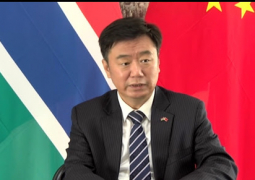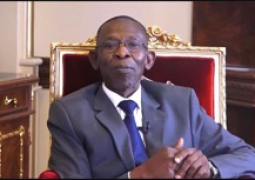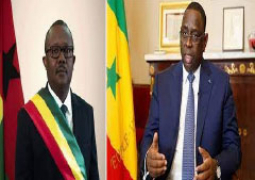This was revealed before lawmakers on Friday by the minister for Finance and Economic Affairs, Seedy Keita, as he presented the draft budget estimate for the 2025 fiscal year.
“The fiscal gap will drop to 0.1% of gross domestic product in 2025 from a forecast of 2.6% of GDP this year. Economic expansion will reach 5.8% next year from 5.7% in 2024,” he added.
“Consistent with the objective of reducing public debt, deficit financing for the 2025 budget deficit will be minimal. It will be financed mainly from domestic financing and external borrowing. In essence, the Gross Deficit is estimated to reach D198.32 million or 0.10% of Nominal GDP.”
He highlighted that the budget deficit is the lowest in the last 10 years, adding “much less than 1% of the GDP, the budget deficit of 2025 is a reduction of 67% from 2024.”
He also stated that the overall debt service (interest payment plus amortization) is projected to reach D11.01 billion in 2025 from D7.50 billion.
“Debt interest is projected to increase by 15% from 5.11 billion in 2024 to 5.88 billion in 2025 because of an expected 63% increase in interest payment on external debts as well as the expected increase in interest payment on the 30-year bond.”
He further disclosed that the debt vulnerability is being addressed, and the 2025 budget is designed to continue to reduce the debt to GDP on a sustained trend.
“The debt to GDP was 85% in 2020 and declined to 83% in 2021 and further downward to 72% in 2023. And for 2024 and 2025, this is projected to decline to 69% respectively,” he said.
He explained that the downward trend reduction is the result of sustained economic growth over the period and careful management of the debt stock through the prudent borrowing and enhanced resource mobilisation.
Speaking on inflation, the Minister underscored that the sustained tight monetary policy stance has triggered moderation in inflation, from 16.7% in January to 10.0% in September 2024.
“The implementation of the new foreign exchange policy by the Central Bank of the Gambia coupled with increased foreign currency inflows restored exchange rate stability.”
He added that in the medium-term, inflation is projected to decelerate further towards the Central Bank of the Gambia (CBG) target of around 5%.
“The deceleration in the rate of inflation will be sustained by moderating commodity prices, and coordination of policy efforts by the fiscal and monetary authorities.”
Similarly, he continued “the exchange rate is projected to stabilise in the medium-term. This will be driven by sustained forex inflows and positive effects of the forex policy introduced by the CBG.”
“Despite global and domestic challenges, economic growth remains relatively stable largely due to stabilising macroeconomic environment, strategic investments in infrastructural projects, increased productivity in agriculture, recovery in tourism and resilient remittance inflows.”
“This economic growth is projected to continue with provisional figures estimating a growth rate of 58% for 2025. This will be driven by the expected stability in the macroeconomic environment and sustained growth in the productive sectors in medium term.”





